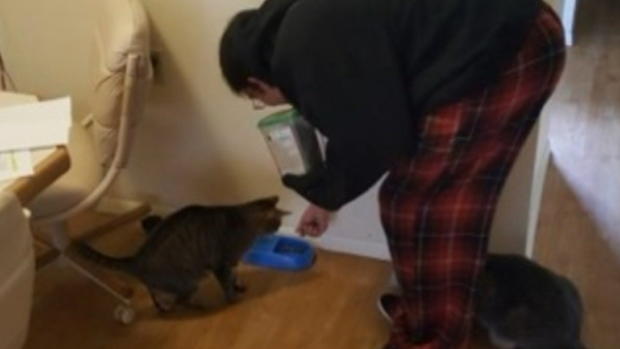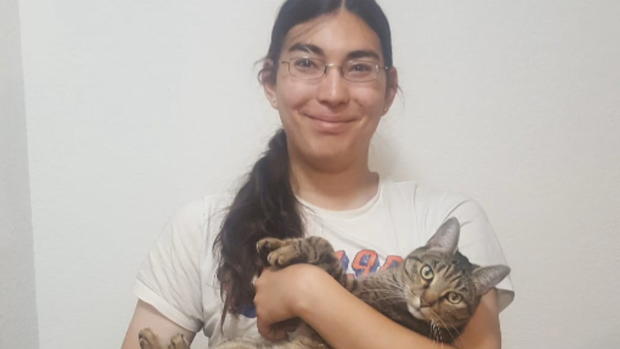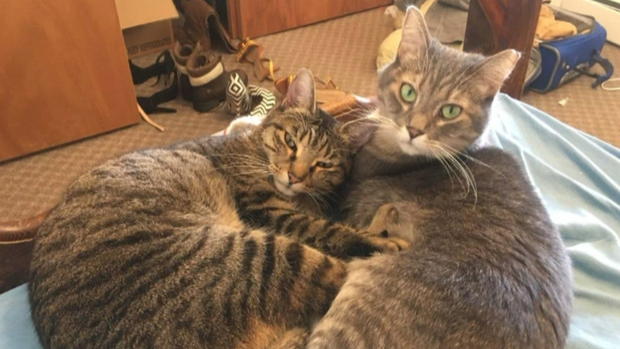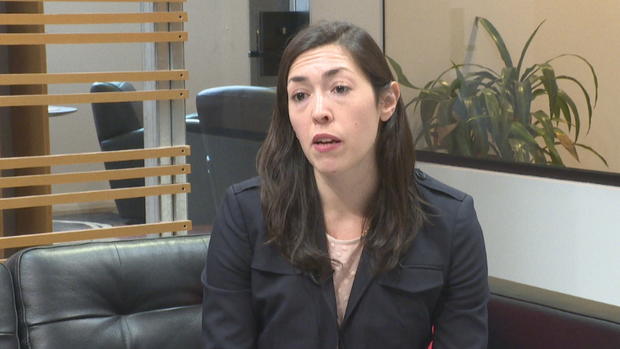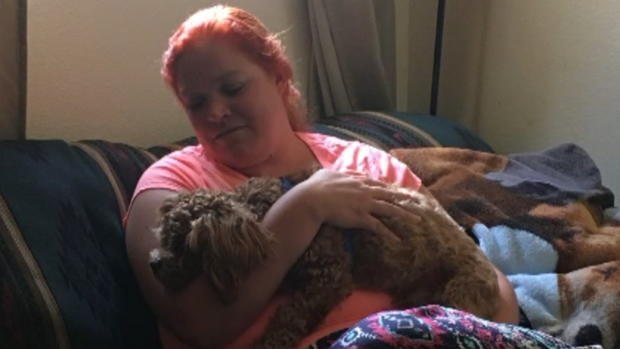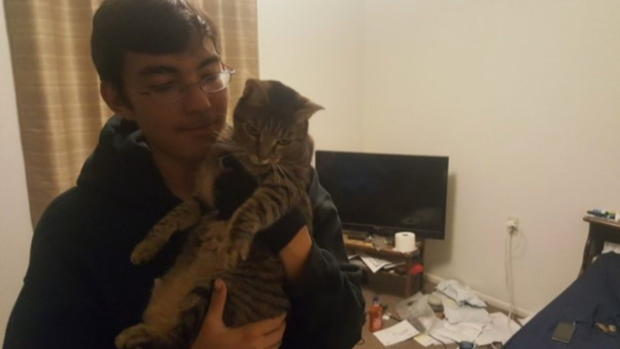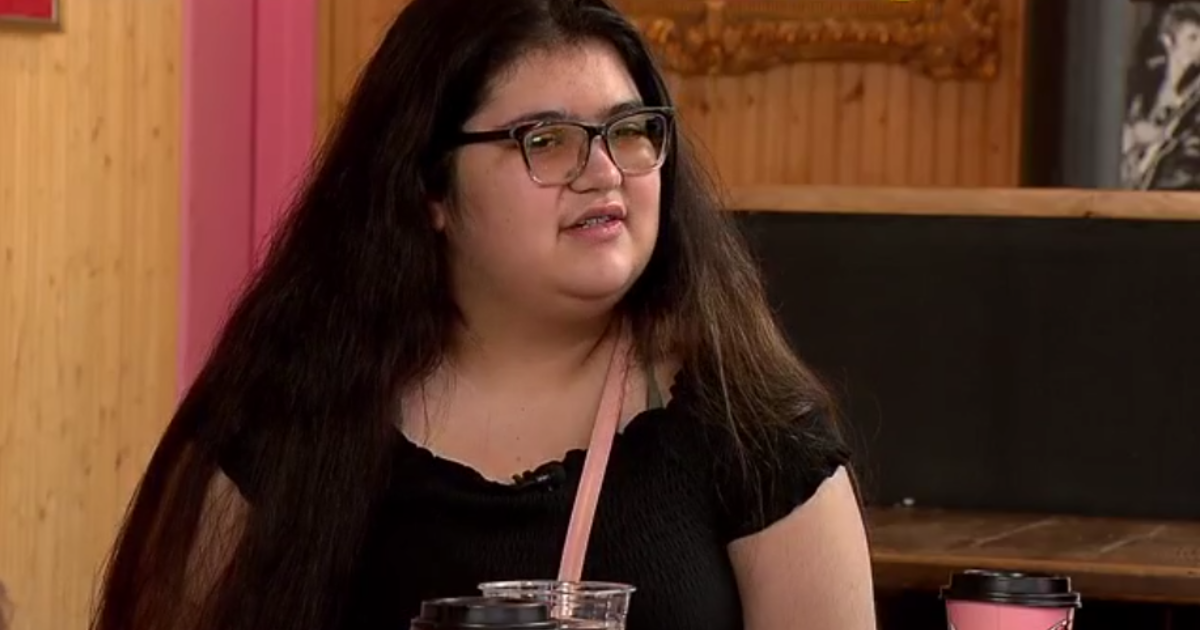Landlord To Pay $1M In Emotional Support Animals Lawsuit
MEEKER, Colo. (CBS4) – Residents with disabilities using the Meeker Housing Authority won a discrimination lawsuit for $1 million. The suit was filed after their landlord told them their emotional support animals would not be allowed without paying an additional pet fee.
"I read the pet policy, I saw some of the statements in it, and I said this pet policy is not fair," Lonnie White said over the phone to CBS4.
His son A.J. suffers from depression but his health has made significant progress with the help of cats in their home. The responsibility of taking care of a pet alone has given new meaning to his life.
"It kind of gave me hope, gave me something to live for," said Antonio "A.J." White. "When I first moved here, I was a lot more quiet than I am now, it was pretty bad."
But the Meeker Housing Authority expected him to pay a pet fee of $300 per cat when their rent was only $125 a month. It was an expense they could not afford and tried to avoid with proof from a therapist of the need to have the cats, White told CBS4 over a video phone call on Tuesday.
"Like most depressed people, when they're depressed, they don't want to do anything, just getting out of bed is hard," he said of his son. "It was evident immediately to me the importance of having the animals."
So White contacted the Rathod Mohamedbhai Law Firm and started working with attorney Laura Wolf.
"Unfortunately, I believe that it is too common here in Colorado," Wolf said of the type of discrimination the family experienced from the housing authority. "I think we need more education for landlords and to understand what these rights actually are."
Wolf and the law firm found another case involving Megan McFadden and her dog that served as an emotional support animal. Both families have residents with a mental health disability, an invisible disability that makes it difficult for others to understand and offer the appropriate services. Wolf says some property owners do not understand the laws protecting these tenants or ignore these policies because they think residents will not have the resources to hire an attorney.
"More education, getting the word out there, showing that you know these cases are real and that people need to be given the same access to housing regardless of disability," she said.
The Meeker Housing Authority and the Town of Meeker together settled with the plaintiffs for $1 million. For these low-income families, the money awarded will dramatically affect their quality of life and future plans. It will also give them a level of security they have never experienced when it comes to housing. It is already a challenge to find a place to live in Colorado and even more of a struggle if you have a disability.
"This is just a life changing amount," Wolf said. "It's showing people that there's real harm that comes with these cases, the emotional harm, the financial harm."
White says he hopes his son can move and live on his own without having to rely on his father as much in the future. It is also important that A.J. can keep the routine he has built with the cats, they provide love and responsibility. The family also hopes their case can help educate both landlords and residents about their rights and make sure other families do not deal with the same discrimination.
"I'm from New Jersey, there's three things you don't mess with, that's my family, my job and my home," White said. "I don't like bullies and I stand up to bullies."
Wolf said she was proud to represent these clients because they were tough throughout this case and care about helping others by spreading the word about what happened to them. She says it is also a reminder for everyone to appreciate all disabilities, including the ones we cannot see.
"This is a case that's really important to spread the word that individuals with disabilities, even disabilities we can't see, we can't pinpoint, we don't know what they are until they disclose them to us," she said. "That those individuals still are disabled and we have to treat them with the respect and dignity that they deserve."
White also said it is essential for others to understand the role these animals play in their lives. For his son, it was the reason to get out of bed every day when his depression kept him from living his life each day.
"I don't have to get rid of a family member just because you say so, that's what they are to us," he said. "You can't treat people like that, you have to respect them and learn the laws."
